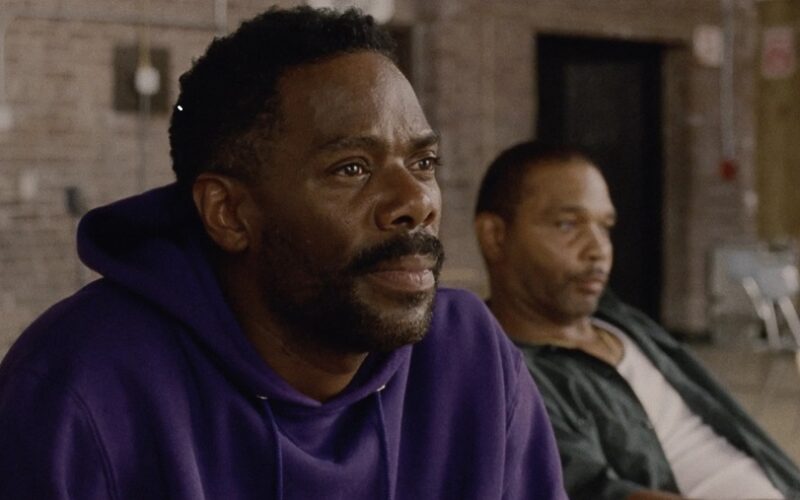Sing Sing (Kwedar, 2023)
If I am honest, I spent most of Sing Sing wishing there was a quality documentary about the material that I could watch instead.
Part of that reaction can be traced back to my admiration of The Work. While that 2017 documentary (which landed on the 2020 Arts & Faith Top 100 Spiritually Significant Films List) is about a different prison (Folsom) and a different program (group therapy integrating non-incarcerated men), I thought about it frequently while watching Sing Sing. One of my critical precepts is that if a movie is constantly making you think of another movie you liked better, that is usually a sign that there is a flaw in the design or execution.
Sing Sing is about a theater group inside the prison and the relationships of its participants. It is anchored by a superb performance from Colman Domingo as Divine G , a co-founder of the program who finds purpose in it (and helping others) while maintaining hope for parole or exoneration. The film also features members of the theater group playing themselves, blurring the line between fact and fiction.
The things the film does well, it does very well. Those include helping us to see the prisoners as multi-faceted individuals rather than just character types (convicts). Also, like The Work, it focuses as much on the ways prison assaults and warps the inner being, on the psychological and spiritual hardships of incarceration that rival the physical dangers but rarely get as much attention. Anyone who has ever been in an environment where weakness or vulnerability were existential threats will surely understand the temptation to suppress all emotion, even at the cost of self-damage.
One thing that makes the program interesting to me is that theater often amplifies insecurities and jealousies. While art does help us process emotions, the production of art involves competition, intimacy, collaboration, and sacrifice. This is where Sing Sing falls short of The Work, in my opinion. For all the talk of trusting “the process,” that process isn’t necessarily explained or examined in a fully satisfying way. We see the group’s writer/director (Paul Raci) lead the characters through various acting exercises (visualize someone you would like to see, walk as though you were on hot coals), and we occasionally have the actors share what they are visualizing or thinking. But so much, perhaps too much, of the conflict is internal. When the film tries to externalize things, such as when a parole board member acts Divine G if he is acting for them, things start to get heavy-handed.
Because the play that the prisoners are performing is an original work (a time-travel comedy with Hamlet and a mummy), we see only bits and pieces of the performance and have to take the film’s word for it that the process works to create good art. Yes, I know Hamlet’s “to be or not to be” soliloquy, but how it functions in this play is not evident. Since a key thematic point revolves around who executes this speech better, questions arise over whether the person who is cast is given the role because he is better, because he needs it more, or for some other reason.
None of this makes Sing Sing a bad movie. I have no problem giving it a “fresh” rating or recommending a video or streaming rental. But given the film’s reception on the festival circuit and that Domingo is coming off an Academy Award nomination for Rustin, I suspect A24 has higher hopes for the film. It is an interesting, understated film, but not quite the prestige piece it is trying to be.

